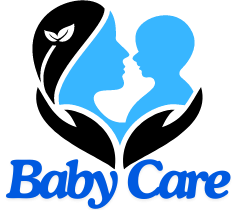A baby is typically considered a newborn for the first 2-3 months of life. After that period, they transition into being an infant.
The newborn stage is a crucial time of rapid development and adjustment for both the baby and the parents.
During these first few months, newborns go through many changes as they adapt to life outside the womb.
Their reflexes become more controlled, they start following objects with their eyes, and their sleep and feeding patterns gradually become more predictable.

While every baby is different, understanding the newborn stage can help parents know what to expect in those first few life-changing months.
When is a Baby No Longer a Newborn?
A baby is typically considered a newborn for the first 2-3 months of life.
After this initial phase of rapid development and adjustment, they transition into the infant stage.
A common misconception is that a baby remains a newborn for the entire first year, but this designation only applies to the first few months.
The Typical Newborn Phase
The newborn phase is a distinctive and fleeting period in a baby’s life. The following milestones and timeframes typically characterize it:
| Milestone | Timeframe |
|---|---|
| Newborn Phase | First 2-3 months |
| Birth Weight Doubled | Around 4-6 months |
| First Social Smile | Around 6 weeks |
| Head/Neck Control | Around 3 months |
| Increased Sleep Consolidation | Around 3-4 months |
| Transition to Infant Stage | Around 3-4 months |
During these first few months, newborns undergo rapid growth and development, both physically and neurologically.
They are adjusting to life outside the womb, learning to regulate bodily functions, and starting to interact with their environment and caregivers in new ways.
The end of this phase is marked by greater alertness, improved motor skills, and the emergence of more complex behaviors, signaling the transition into the infant stage.
How Long is the Newborn Stage?
The newborn stage typically lasts for the first 2-3 months of a baby’s life. However, there is no definitive end date, as every baby develops at their own pace.
Some general guidelines about the duration of the newborn phase include:
- 0-8 Weeks: Considered the “fourth trimester,” this earliest stage sees rapid adjustments as the baby transitions to life outside the womb.
- 2 Months: Many experts consider 2 months the official end of the newborn period when more organized sleep/wake cycles and patterns emerge.
- 3 Months: By 3 months old, most babies have doubled their birth weight and reached several developmental milestones like head control and social smiling.
- 4 Months: Around this time, babies start exhibiting more regulated circadian rhythms and consolidated sleep, signaling the shift into infancy.
The transition out of the newborn stage is gradual, with development occurring across a continuum.
Watching for cues like improved motor skills, longer awake periods, and more interactive engagement can hint when your little one is ready for the next phase.
Signs That Your Baby is Growing Out of the Newborn Stage
As your little one approaches the end of the newborn period, around 2-4 months, you may start noticing some telltale signs that they are transitioning into the infant stage. Keep an eye out for these developmental milestones:
| Milestone | Signs of Transition Out of Newborn Stage |
|---|---|
| Sleep Patterns | Longer stretches of nighttime sleep (4-6 hours) – More awake time during the day – Emergence of circadian rhythms/day-night cycles |
| Motor Skills | Better head and neck control – Reaching for objects with hands – Rolling over from tummy to back |
| Social & Cognitive Development | Social smiling and engaging with faces/voices – Increased periods of alert wakefulness – Recognizing familiar people/voices |
| Feeding | Less frequent feedings as appetite increases – Longer feedings as capacity grows – Potential interest in solid foods around 4-6 months |
| Physical Growth | Doubled birth weight by 4-6 months – Lengthening of body and limbs – Loss of umbilical cord stump |
While not definitive markers, these are common signs that your newborn is blossoming into an infant.
The transition is gradual, so celebrate each new skill! Your baby’s increasing alertness, social engagement, and motor abilities all point to this exciting developmental leap.
Transitioning from Newborn to Infant
The shift from the newborn to the infant stage is a gradual process without a definitive end date. However, around 2-4 months, you’ll likely notice your baby achieving various developmental milestones that signal this transition:
| Area of Development | Transitioning from Newborn to Infant |
|---|---|
| Sleep Patterns | Longer stretches of sleep at night (4-6 hours) – More awake periods during the day – Establishment of circadian rhythms |
| Motor Skills | Improved head and neck control – Reaching for objects with hands – Rolling over from tummy to back |
| Social & Cognitive | – Social smiling and engaging with faces/voices – Increased alertness and attention span – Recognizing familiar people, voices, objects |
| Feeding | Appetite increases, so less frequent feedings – Longer feedings as stomach capacity grows – Potential interest in solid foods around 4-6 months |
| Physical Growth | Doubling of birth weight by 4-6 months – Lengthening of body and limbs – Loss of umbilical cord stump |
This transition brings exciting changes as your baby becomes more socially engaged, and physically capable and demonstrates more organized patterns. Key signs include improved sleep cycles, increased motor abilities, social engagement, changing feeding needs, and physical growth milestones.
However, it’s important to remember that every baby develops at their own pace. If you have any concerns, discuss them with your pediatrician. With patience and nurturing, you’ll soon have an active, curious infant on your hands!
Adapting to the Changing Needs of Your Baby
As your little one transitions from the newborn to infant stage around 2-4 months, their needs will start to evolve.
Being attuned to these shifts and adjusting your care approach can help make this transition smoother for both of you.
Sleep Needs
- With more awake periods, create an environment conducive to daytime naps
- As nighttime stretches lengthen, implement a calming bedtime routine
- Be flexible as sleep patterns and needs change
Feeding Requirements
- Watch for hunger cues as appetite increases
- Prepare for longer, less frequent nursing/bottle sessions
- Discuss introducing solid foods with your pediatrician around 4-6 months
Developmental Milestones
- Provide toys and activities to encourage motor skill development
- Narrate your day and label objects to boost language acquisition
- Baby-proof your home as mobility increases
Social Engagement
- Spend time face-to-face, smiling, talking, and playing
- Read books and sing songs to nurture cognitive growth
- Introduce new sights, sounds, and experiences
The newborn days pass quickly! Staying attuned to your baby’s cues and adjusting your care approach will help you both navigate this exciting transition confidently. With patience and attentiveness, you’ll meet their evolving needs every step of the way.
Seeking Professional Guidance
While the transition from newborn to infant is a natural progression, every baby develops at their own unique pace.
If you have any concerns about your little one’s growth or milestones, don’t hesitate to seek guidance from healthcare professionals.
When to Talk to Your Pediatrician
- If your baby isn’t achieving typical milestones like head control, rolling over, etc., by 4-6 months
- If feeding issues like lack of appetite or difficulty latching persist
- If sleep patterns remain severely disrupted beyond 4 months
- If your baby shows a lack of interest in social engagement or environmental stimuli
Your pediatrician can evaluate your baby’s development, rule out any underlying issues, and provide tailored advice.
They may recommend strategies, exercises, or therapy services to support areas needing extra attention.
Lactation Consultants For nursing concerns like latch issues or low milk supply, certified lactation consultants can be invaluable resources as your baby’s feeding needs change.
Other Specialists Depending on your circumstances, your pediatrician may also recommend consulting specialists like:
- Speech/occupational therapists for developmental delays
- Nutritionists for guidance on starting solids
- Sleep trainers for persistent sleep issues
The newborn phase is fleeting but can also be challenging. Don’t hesitate to seek professional support to ensure your baby’s transition to infanthood goes smoothly. Your care team is there to address any concerns.
Conclusion:
In conclusion, while there is no definitive date for when a baby transitions out of the newborn stage, most experts agree that it happens around 2-3 months old.
During this time, you’ll start noticing exciting milestones like improved sleep patterns, increased motor skills and social engagement, changing feeding needs, and physical growth spurts.
The key is staying attuned to your individual baby’s cues and adapting your care approach accordingly.
If you have any concerns, don’t hesitate to seek guidance from your pediatrician or other professionals.
With patience and nurturing, you’ll soon be enjoying all the delights of having an active, curious infant on your hands!

